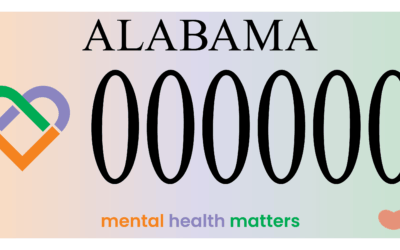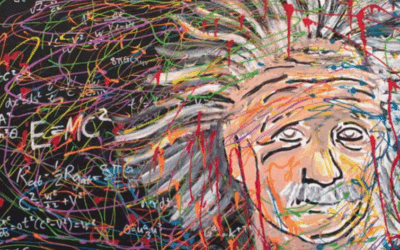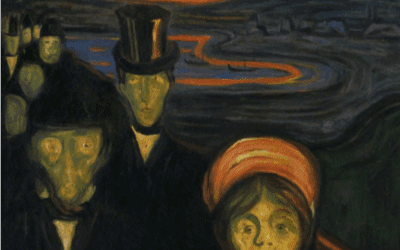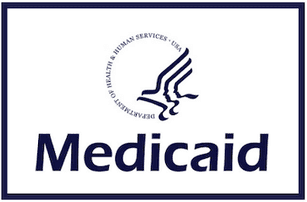Navigating the Intersection of Mood and Neurodiversity

What is Depression with Autism?
Depression and Autism Spectrum Disorder (ASD) are distinct conditions that can co-occur. Research suggests that individuals with autism are at a higher risk of developing depression, with some studies indicating rates as high as 40%. When someone has both depression and autism, we refer to this unique neurological profile as Depression-Autism.
The Diagnostic Evolution of Depression-Autism
Historically, depression in autistic individuals was often overlooked or misattributed to autism itself. Recent advancements in understanding neurodiversity have led to more nuanced diagnostic approaches, recognizing that autistic individuals can and do experience depression, albeit sometimes with atypical presentations.
The Neurological Complexity of Depression-Autism
Brain imaging studies have shown that both depression and autism involve alterations in areas related to emotional processing, social cognition, and executive function. In Depression-Autism, these neurological differences interact in complex ways, creating a unique cognitive and emotional landscape.
The Push-Pull of Overlapping Symptoms
Living with Depression-Autism often involves navigating complex emotional and social experiences:
- Autistic traits like social difficulties may exacerbate or be exacerbated by depression
- Sensory sensitivities in autism can intensify feelings of overwhelm associated with depression
- Special interests in autism might be affected by depression’s impact on motivation and pleasure
These overlapping traits can result in:
- Difficulty in expressing emotional pain due to alexithymia (common in autism)
- Increased social isolation due to both autistic traits and depressive symptoms
- Challenges in accessing appropriate mental health support due to communication differences
Gender Differences in Presentation
Depression-Autism can manifest differently across genders:
- Women with autism may be more likely to internalize depressive symptoms
- Men might express depression through increased irritability or withdrawal
- Non-binary and gender diverse individuals may face additional challenges in accessing appropriate support
Rethinking Treatment for Depression-Autism
Managing Depression-Autism requires a nuanced approach that respects autistic neurology while addressing depressive symptoms. Innovative treatments showing promise include:
- Somatic Experiencing (SE): This body-oriented approach can help individuals with Depression-Autism connect with their physical experiences of emotions. SE techniques can be adapted to accommodate sensory sensitivities and promote emotional regulation.
- Lifespan Integration (LI): LI can help individuals with Depression-Autism create a more coherent narrative of their experiences, integrating past events and improving overall emotional wellbeing. This gentle approach can be especially beneficial for those who struggle with traditional talk therapies.
- Brainspotting: This therapy can be effective in addressing both depression-related neural patterns and sensory processing differences in autism. By focusing on specific eye positions, brainspotting can help process emotional experiences in a way that may feel more accessible to autistic individuals.
- qEEG Brain Mapping: This non-invasive assessment tool can provide valuable insights into the specific brain activity patterns of individuals with Depression-Autism. The resulting data can guide personalized treatment plans, including neurofeedback interventions to address both mood regulation and autistic traits.
These approaches, combined with autism-informed adaptations of traditional therapies like Cognitive Behavioral Therapy (CBT), can provide a comprehensive treatment plan for Depression-Autism.
The Strengths of a Depression-Autism Mind
While challenging, this neurological combination can also confer unique strengths:
- Deep capacity for empathy and understanding of others’ pain
- Ability to find solace and joy in special interests, even during depressive episodes
- Unique perspectives on emotional experiences that can contribute to art, literature, or advocacy
- Resilience developed from navigating both neurodevelopmental differences and mood challenges
Embracing the Depression-Autism Experience
Understanding Depression-Autism as a distinct profile is crucial for proper support and self-acceptance. It requires appreciating the complex interplay between autistic traits and depressive symptoms, rather than viewing them as entirely separate issues.
For those living with Depression-Autism, developing personalized coping strategies is key. This might involve:
- Creating a sensory-friendly environment that supports emotional regulation
- Exploring alternative forms of emotional expression, such as art or music
- Connecting with neurodivergent-affirming support groups
- Developing a depression management plan that incorporates autistic needs and strengths
With the right combination of professional support, self-management strategies, and self-compassion, individuals with Depression-Autism can lead fulfilling lives that honor the complexity of their neurological and emotional experiences.
If you relate to the experiences described in this article, consider seeking an assessment from a mental health professional experienced in both depression and autism. Remember that your experiences are valid, and support is available to help you navigate this unique neurotype.
Resources to ADHD Comorbid with Other Disorders
Taproot Therapy Collective (Birmingham, AL)
- Treatments: Brainspotting, EMDR, Somatic Experiencing, Lifespan Integration, Parts-Based Therapy, Trauma Mapping.
- Specialties: Specializes in trauma therapy, PTSD, anxiety, panic, and dissociative disorders. Their therapists use integrative methods to help clients heal from trauma at a deep, somatic level.
- Website: gettherapybirmingham.com
1. Crisis Center Birmingham (24/7 Crisis Line)
- Phone: (205) 323-7777
Provides immediate support for individuals in emotional distress, including suicide prevention, trauma, and mental health crises. - Website: crisiscenterbham.org
2. Rape Response Line (Crisis Center Birmingham)
- Phone: (205) 323-7273
Dedicated to providing support for survivors of sexual assault, available 24/7. - Website: crisiscenterbham.org/rape-response
3. Teen Link (Crisis Center Birmingham)
- Phone: (205) 328-5465
Teen-specific support line for youth in emotional or mental distress. - Website: crisiscenterbham.org
4. National Suicide Prevention Lifeline (Serving Alabama)
- Phone: 988
A national 24/7 suicide prevention hotline accessible to individuals in Birmingham and the rest of Alabama. - Website: 988lifeline.org
5. UAB Psychiatry Emergency Services
- Phone: (205) 934-7008
Provides immediate psychiatric evaluation and crisis intervention at the University of Alabama at Birmingham Hospital. - Website: uabmedicine.org
6. Alabama Domestic Violence Hotline
- Phone: 1-800-650-6522
24/7 support for individuals experiencing domestic violence, available statewide, including Birmingham. - Website: acadv.org
7. Birmingham AIDS Outreach Crisis Line
- Phone: (205) 322-4197
Provides crisis support for individuals affected by HIV/AIDS, including mental health services and support for LGBTQ+ communities. - Website: birminghamaidsoutreach.org
8. Alabama 2-1-1 Call Center
- Phone: 2-1-1
A statewide information and referral line connecting individuals to crisis support services for housing, food, mental health, and substance abuse issues. - Website: 211connectsalabama.org
9. Jefferson County Family Resource Center Crisis Line
- Phone: (205) 945-6000
Provides crisis intervention, including family support, domestic violence resources, and mental health services. - Website: jcfrc.org
10. Veterans Crisis Line (Serving Birmingham)
- Phone: 988 (Press 1)
A specialized crisis line for veterans experiencing emotional distress, available nationwide and locally. - Website: veteranscrisisline.net
- Phone: (205) 323-7777
LGBTQ+ and Poly-Friendly Support
Magic City Acceptance Center (MCAC)
LGBTQ+ youth programs, adult support groups, and community events in Birmingham.
Website: mcacbham.org
Birmingham LGBTQ+ Circle of Healing
Support groups for LGBTQ+ individuals focusing on mental health and holistic wellness.
Contact through Magic City Acceptance Center.
Inclusive Therapists
Directory of therapists in Birmingham and Hoover specializing in LGBTQ+ and poly-friendly care.
Website: inclusivetherapists.com
PFLAG Birmingham
LGBTQ+ support groups for families and friends of LGBTQ+ individuals, offering mental health and advocacy resources.
Website: pflaga.org/birmingham
Steel City Spectrum
Provides support and resources for the transgender and gender-nonconforming communities in Birmingham.
Website: steelcityspectrum.org
Free & Low-Cost Therapy and Counseling
Impact Family Counseling (Birmingham, AL)
Provides sliding-scale counseling services for trauma, anxiety, depression, and family therapy.
Website: impactal.org
Firehouse Shelter (Birmingham, AL)
Offers mental health services and crisis support for homeless individuals in the Birmingham area.
Website: firehouseshelter.com
Pathways Birmingham
Women’s shelter offering mental health and trauma support for homeless women and children.
Website: pathwayshome.org
United Way of Central Alabama
Offers access to free or low-cost mental health counseling and crisis intervention through partnerships.
Website: uwca.org
BridgeWays Alabama
Offers family and youth counseling, including trauma recovery, on a sliding fee scale.
Website: bridgewaysalabama.org
Holistic & Alternative Therapy Centers
Taproot Therapy Collective (Birmingham, AL)
Offers holistic mental health services like Brainspotting, EMDR, and somatic trauma therapies.
Website: gettherapybirmingham.com
Birmingham Wellness Institute
Focuses on alternative healing practices such as yoga therapy, mindfulness, and EMDR.
Website: bhamwellness.com
Sojourn Counseling (Hoover, AL)
Provides integrative counseling with a focus on EMDR, trauma work, and mindfulness.
Website: sojourncounseling.com
Red Mountain Therapeutics (Birmingham, AL)
Offers somatic therapies, acupuncture, and integrative emotional healing for trauma recovery.
Website: redmountaintherapeutics.com
Shanti Healing Arts Center (Birmingham, AL)
Focuses on trauma-sensitive yoga, meditation, and holistic therapies for emotional and mental health.
Website: shantihealingarts.com
Lifespan Integration & Trauma Mapping
Birmingham Counseling Associates
Provides Lifespan Integration therapy for complex trauma and PTSD.
Website: bhamcounseling.com
Lifeline Counseling (Hoover, AL)
Trauma-informed care specializing in Lifespan Integration and Somatic Trauma Mapping.
Website: lifelinehoover.com
River Oaks Counseling
Offers Lifespan Integration and other trauma-focused therapies for PTSD and dissociation.
Website: riveroakscounseling.com
Emotional Wellness Counseling
Provides Lifespan Integration therapy and somatic trauma work.
Website: emotionalwellnesshoover.com
qEEG Brainmapping and Neurofeedback Resources
Focus-MD Birmingham
Specializes in ADHD treatment and qEEG brain mapping for neurodevelopmental disorders.
Website: focus-md.com
Birmingham Neurofeedback Clinic
Provides qEEG brain mapping and neurofeedback for trauma, anxiety, and ADHD.
Website: birminghamneurofeedback.com
Alabama Neurofeedback
Offers qEEG brain mapping and neurofeedback to improve brain function and emotional regulation.
Website: alneurofeedback.com
Covenant Neuropsychology
qEEG brain mapping services for trauma-related symptoms and neurological issues.
Website: covenantneuro.com
Psych Wellness South (Hoover, AL)
qEEG and neurofeedback services to treat anxiety, ADHD, and trauma.
Website: psychwellnesssouth.com
Poly-Friendly & Non-Monogamy Support
Inclusive Therapists
Directory for poly-friendly and non-monogamy affirming therapists in the Birmingham and Hoover areas.
Website: inclusivetherapists.com
Birmingham LGBTQ Circle of Healing
Offers support for polyamorous and non-monogamous relationships.
Contact through Magic City Acceptance Center.
Alabama Polyamory Network
A supportive community providing mental health resources for polyamorous individuals.
Contact via Meetup: meetup.com/polybirmingham
New Hope Counseling
Poly-friendly therapy services, offering support for non-traditional relationships.
Website: newhopecounselingbham.com
Open Counseling Birmingham
Provides mental health counseling for those in polyamorous or open relationships.
Website: opencounseling.com
Youth & Family Services
Oasis Counseling for Women and Children
Provides trauma therapy, parenting support, and family counseling.
Website: oasiscounseling.org
Children’s Aid Society of Alabama (Birmingham)
Family and individual counseling, including trauma services for children.
Website: childrensaid.org
Aletheia House
Mental health and substance abuse services for families, including trauma recovery programs.
Website: aletheiahouse.org
Big Brothers Big Sisters of Greater Birmingham
Offers mentorship and emotional support for at-risk youth.
Website: bbbsbhm.org
The Exceptional Foundation
Provides support for children and adults with special needs, including mental health resources.
Website: exceptionalfoundation.org


























0 Comments